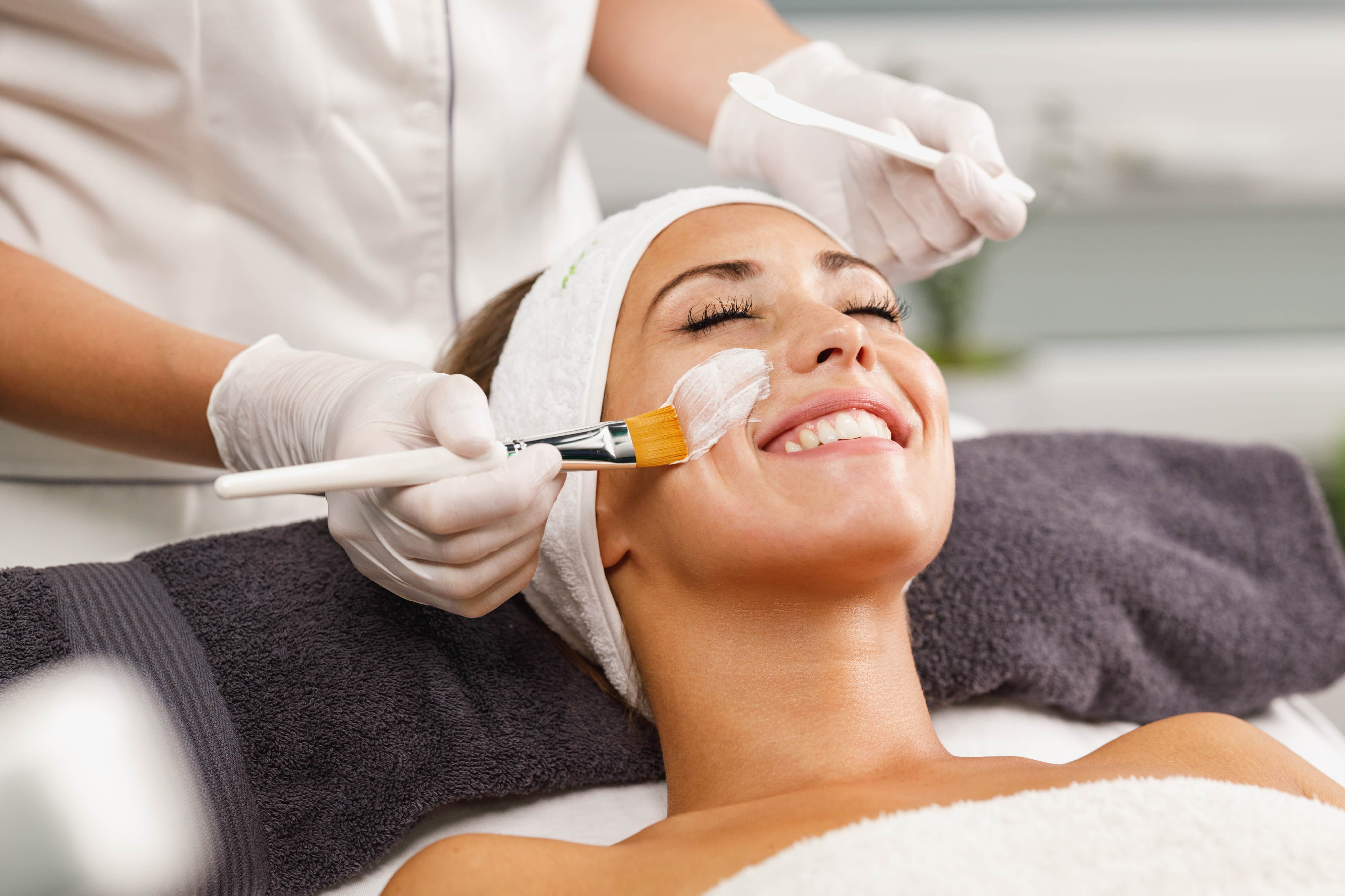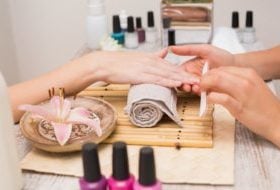How to become a beauty therapist
How to Become a Beauty Therapist is our downloadable ultimate career guide for anyone who is serious about a career in beauty therapy. Let us walk you through the entire process to becoming a beauty therapist from college to salon work; apprenticeship to salon manager. We will show you how.
The UK beauty industry is currently worth over £17 billion. With images of celebrity, beauty and style being broadcast to global audiences on a daily basis, people want a quick fix. The industry itself is ageless. Young people want to look young for as long as possible, and older people are trying to prevent ageing. As a beauty therapist, it is your job to continue this trend.
Sometimes deciding which option to take can be confusing. Should you specialise in massage? Perhaps you want to work as a mobile therapist, or work from home. You could teach beauty, run your own salon or work on a cruise ship. The opportunities are limitless. In our guide, we will show you how to achieve all of these and more.
If you have recently finished your GCSEs, now is the perfect time to begin your career. There are two fantastic options available, in beauty college and beauty apprenticeships.
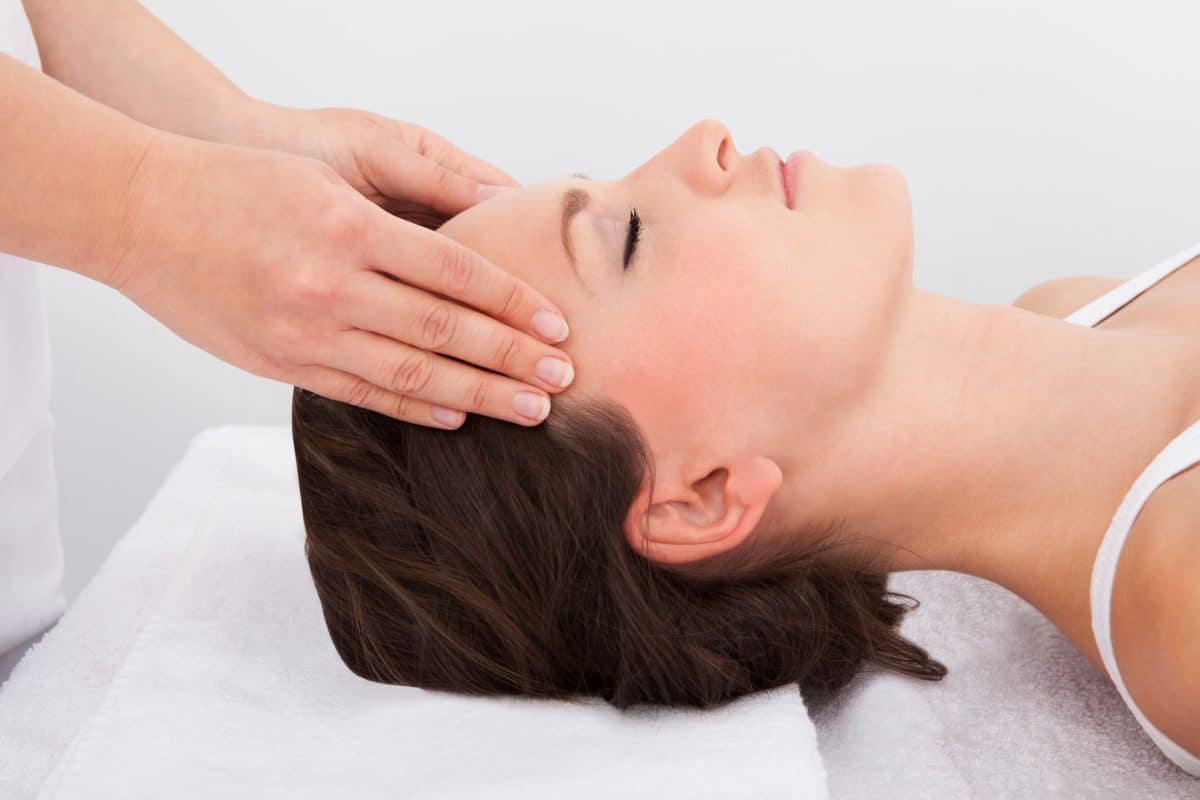
BEAUTY COLLEGE
The first thing you’ll need to do is fill out an online application form. These can be filled in via the college website, and will then be passed over to the admissions team. Usually you’ll have to fill in your personal details, and then you will be asked some competency based questions. Once you’ve completed the application form, you’ll be invited to attend an interview with one of the lecturers at the college. First, you’ll be asked to fill in a questionnaire, and finally you’ll interview face to face with one of the lecturers. You will be marked based on your appearance, oral expression, written expression, enthusiasm, personal hygiene and language. The lecturer may ask you questions on any number of topics. Below we’ve provided you with a potential question, and sample response to this question:
What makes you a good candidate for this course?
This is a question you should expect to hear in every interview. It is also a great question for you, because it allows you to sell yourself to the asker. While you should try to come across as confident and enthusiastic, don’t be afraid to flatter the institution a little either.
“I am not just a great candidate for this course, but as a beauty therapist in general. I am a really social, friendly, outgoing person who loves to meet new people, and help them to feel good about themselves. I’ve always loved helping friends and relatives with their hair and makeup and now I’d love the opportunity to test these skills in the workplace. I still have a great deal to learn however, and this course will really benefit me in that respect. I really believe this college is the best place for me to study.”
MODULES
According to your GCSE results, you will be sorted into 2 possible categories:
Level 1 Diploma in Beauty
Requirements: 5 GCSEs, D to F or equivalent. including English or Maths at grade 2 or above..
Level 1 Beauty is a very basic programme, which mainly involves assisting, with less studied content. Candidates will learn and assist with basic skills such as the application of day makeup, basic facial, basic manicure. This generally doesn’t involve pedicure, advanced makeup, eye treatment or waxing. Candidates good enough to progress will move onto Level 2 in the following year.
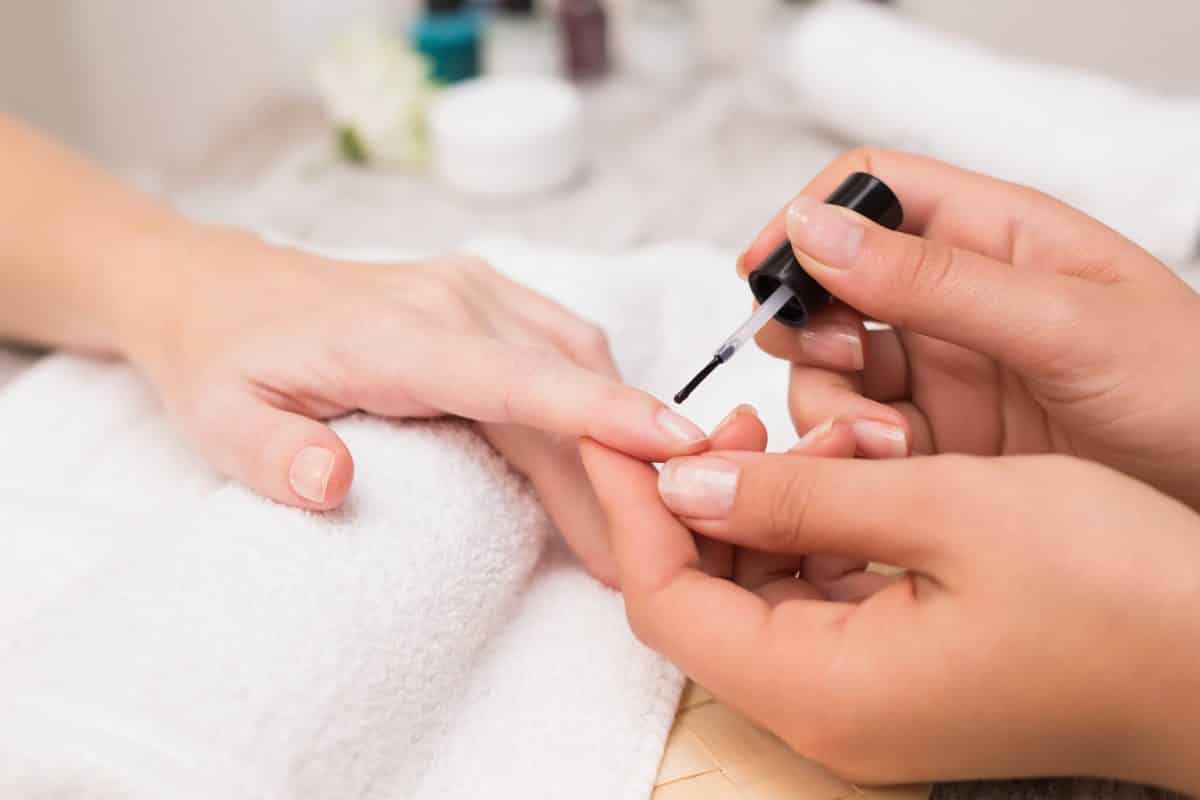
Level 2 Diploma in Beauty
Requirements: 5 GCSES, Ds and above, including English or Maths at grade 3 or above.
Level 2 Beauty is a regular programme that involves more content than Level 1, and less assisting. Candidates will learn and assist with everything included in Level 1, and this will also involve pedicure, advanced makeup, eye treatment and waxing. You will learn about removing unwanted facial and body hair, spray tanning, eyebrow alteration and skin cleansing.
Following the completion of Level 2, candidates who are strong enough will move onto Level 3. This level can only be reached with both high results and attendance during Level 2. Level 3 is an advanced programme that involves more content than either Level 1 or Level 2, and more individual treatment work. This can include regular massage, Indian head massage, aromatherapy, electro therapy, non-surgical skin improvement treatments, and hot-stones treatment.
Each level counts as a standalone qualification, with candidates who are good enough, staying on to move up to the next level. Your progress will be determined by both observational and online assessments, and your attendance over the course of the year, with 90% generally the minimum required. The observational tests will usually take place at the end of each module, and will decide 50% of your grade.
Below we’ve laid out some typical beauty exam questions, which you might expect to find at the end of a module:
The nail plate acts as a shield for the tissue underneath the nail bed.
The nail matrix is responsible for the production of cells which produce, and help to re-grow, the nail plate itself.
3 changes that can affect nails are a result of ageing are: Nails may become dull and brittle, tips may begin to fragment, and nails will grow more slowly.
There are 8 carpal bones in each hand, and they can be found on the wrist.
There are 26 bones in the human foot.
The name for the knee bone is the patella.
The cuticle is a thin layer of skin that covers the nail plate and the nail root, just before the nail surfaces. It brings the skin and the nail plate together to provide a waterproof barrier.
The two bones in the lower leg are the Fibula and the Tibia.
Apprenticeship
APPLICATION
In order to apply for a salon apprenticeship, candidates are required to send in a CV. The salon will then contact and invite the candidates who are suitable to an interview. If you are someone who has recently finished their GCSEs, at the age of 16, this can be an incredibly daunting process. The first step, is to draft up a CV. If you are a younger candidate, you may not have any relevant work experience or training to fall back on. This is okay, since salons will expect this, and are looking for applicants who are eager to learn and develop. In our guide you will find a comprehensive run through of all the details needed to complete your CV, and filling in application forms.
INTERVIEW
In order to apply for a salon apprenticeship, candidates are required to send in a CV. The salon will then contact and invite the candidates who are suitable to an interview. If you are someone who has recently finished their GCSEs, at the age of 16, this can be an incredibly daunting process. The first step, is to draft up a CV. If you are a younger candidate, you may not have any relevant work experience or training to fall back on. This is okay, since salons will expect this, and are looking for applicants who are eager to learn and develop. In our guide you will find a comprehensive run through of all the details needed to complete your CV, and filling in application forms.
What are your strongest qualities?
Prior to your interview, make a list of your strongest qualities. Not only will this prepare you for the question, but it will work as a confidence building tool. Then take the most important qualities from that list, and order them in terms of importance to the role you are applying for. Find examples of when you have used these strong points, and structure them into a response which tells the employer that you are someone whom they should have working for them.
‘Well firstly, I’m extremely sociable. I know that it’s important to have a friendly and relatable personality in this industry, and that is one of the reasons I believe I’m so suited to the role. While I was at college, I volunteered as a member of the college counselling team. I’m a great listener and it was highly rewarding to make a difference. I’m also really interested in the industry as a whole. I regularly post on hair and beauty forums, purchase magazines and keep up to date with the latest trends and treatments. I really enjoyed taking my Level 3 at college, because it gave me hands on experience with some of the treatments I had read about. I just love the way the beauty industry is always changing and there are always new things to learn. Working at a restaurant has taught me great customer service and teamwork skills, so I’d like the chance to apply these to a job I’m interested in.’
Qualified Beauty Therapist
SALON WORKER
Salon workers typically work up to 5 days a week, dealing with clients who come into their shop. They must perform a variety of different treatments, and maintain a friendly and positive attitude at all times. We have used a typical day in the life from one of our inside experts, to help give you a better idea of what working in a salon is like.
Mobile Therapist
Mobile beauty therapists travel to client’s homes, delivering treatment that would normally be found in a salon. They work independently, within the confines of a particular area. In order to work as a mobile beauty therapist, you will need to have some knowledge of how to set up your own business. Here are two of our top tips that you should consider:
Market Research:
Before beginning your mobile beauty business, it is extremely important to research the area you will be conducting your business in. You also need to set yourself guidelines on how far you are willing to travel. Timing is a crucial factor when working as an independent therapist, and therefore it is a good idea to keep your target area local and small. If you are travelling huge distances every single day then you will not only lose money on fuel, but there are likely to be delays between clients. After you have decided upon your locational boundaries, you must assess the competitiveness of the area in which you are operating. Look at the type of treatments that your competitors offer and the price they charge. As a mobile therapist, you need to find a unique selling point which differentiates you from your competition.
Types of Treatment:
Once you have performed your market research, you need to decide which types of treatment you will offer. When starting out, it is a good idea to keep your treatment bracket fairly small. Whether you trained in a salon, or achieved your qualification through a college course, think about what types of treatments you performed best at, and which ones you enjoyed doing the most. You should use your market research to gage the popularity and competitiveness of treatments in the area. For example, if your research shows that there are large amounts of nail salons and independent nail technicians/specialists within the area, then it would be unwise to specialise in this yourself. Initially, you should try to find a treatment that is unique, stands out from your competitors and will therefore attract customers to your new business. Consider more advanced treatments that you are qualified to perform, such as Indian head massage or reflexology, and make them an integral part of your service list.
For more business tips, tricks and information on other beauty related careers, please purchase our fantastic guide.
ORDER NOW
[col span="3"][/col][col span="6" span__md="12"] [ux_price_table title="" price="£10.97" featured="true" color="light" depth="2" depth_hover="4"]
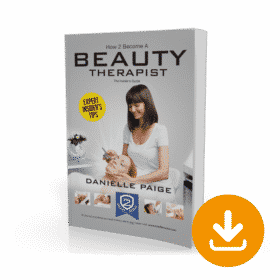
How to Become a Beauty Therapist Download
Add to cart More info [/ux_price_table] [/col] [col span="3"][/col]
